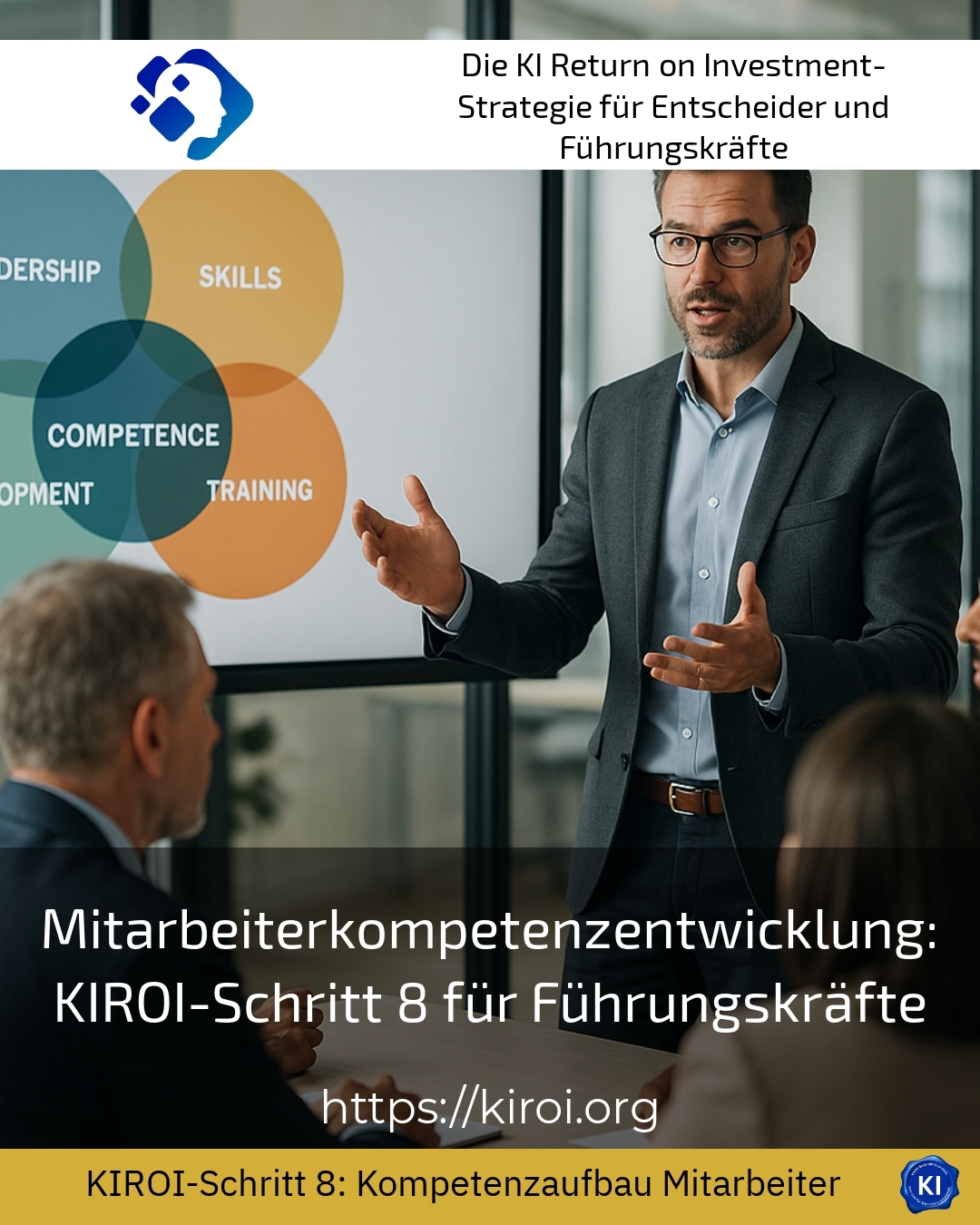The modern working world demands ever greater commitment from managers when it comes to developing employee competences. KIROI Step 8 in particular shows how managers can specifically recognise and promote the potential of their team. This is not just about professional qualifications, but also about social and methodological skills that secure the company's long-term success. Employee skills development thus becomes a central management task that must be strategically supported.
Employee skills development as a key task for managers
Managers have a special responsibility in the development of their employees. They must not only strengthen existing competences, but also promote new skills that are important for future challenges. In practice, this means creating individual development plans and actively supporting learning processes. Companies from various sectors report that this is often achieved through a combination of coaching, mentoring and practical projects.
An example from the IT sector shows how managers in agile teams can introduce development cycles that enable regular reflection on skills development. In this way, employees receive targeted feedback and can continuously improve their skills. In the manufacturing industry, employees are supported through job rotation and practice-orientated training to strengthen both methodological and social skills. Managers in the service sector also report successful pilot projects in which structured skills profiles have made individual development needs visible.
The role of KIROI Step 8 in employee competence development
KIROI Step 8 focusses on sustainably ensuring and integrating learning successes into everyday working life. Managers support their employees in applying and consolidating new skills. This step uses methods that go beyond one-off training sessions. Emphasis is placed on support through coaching and feedback from colleagues.
In the automotive industry, managers use this step to establish innovative production methods directly in practice after training. This not only strengthens technical skills, but also promotes team communication and problem-solving skills. An example from the healthcare sector shows how continuous coaching can improve the empathy and conflict resolution skills of nursing staff, which increases patient satisfaction. In banks, mentoring programmes are used to develop leadership skills in junior managers in order to support the transition to digitalised work processes.
Practical tips for implementing employee skills development
Managers who want to actively promote employee skills development should consider the following aspects:
- Use regular feedback meetings to discuss learning progress and make development areas transparent.
- Define individual learning objectives together with employees so that skills development is targeted.
- Use a mix of methods: In addition to traditional seminars, also promote practice-orientated learning formats such as job rotation or project work.
- Use coaching as continuous support to master personal and professional challenges.
- Create a space for sharing experiences that promotes peer learning and peer counselling.
In the mechanical engineering industry, managers have found that small, regular learning impulses are more effective than infrequent large-scale events. Start-ups are increasingly focussing on digital learning platforms that enable individual pacing and at the same time make learning success measurable. The education sector is increasingly integrating blended learning, a combination of face-to-face and online formats, in order to develop a wide range of skills at the same time.
BEST PRACTICE with one customer (name hidden due to NDA contract) The manager of a medium-sized IT company implemented systematic coaching cycles for her department heads. Through regular reflection sessions and targeted practical tasks, not only technical skills but also leadership competences visibly improved. Employee motivation increased significantly as a result and the company reported a more harmonious team atmosphere.
How transruption coaching supports employee skills development
Transruption coaching accompanies managers and teams throughout the development of new competences. It provides impulses for reflection and helps to defuse areas of tension in change processes. Managers receive a trained perspective to better manage the learning process of their employees and develop individual potential. This supportive guidance is often crucial to the success of complex projects that require employee skills development.
Companies from the financial sector report that transruption coaching has led to greater acceptance of change measures. Temporary employment agencies report that employees can act more confidently in new roles thanks to targeted coaching. Project managers in the pharmaceutical industry use transruptions coaching to support teams in implementing complex process changes.
My analysis
Employee competence development is much more than a series of training courses. KIROI Step 8 emphasises the importance of long-term support and integration of learning processes. Managers must be actively involved in order to promote individual strengths and stabilise team dynamics. The use of different methods, from coaching and mentoring to practical projects, has proven to be effective. Companies that strategically embed employee skills development create the best conditions for remaining competitive in a dynamic market environment.
Further links from the text above:
Successful skills development: 9 tips and 3 strategies
Skills development as a supplement to professional aptitude
Skills development: definition + successful examples
For more information and if you have any questions, please contact Contact us or read more blog posts on the topic Artificial intelligence here.















